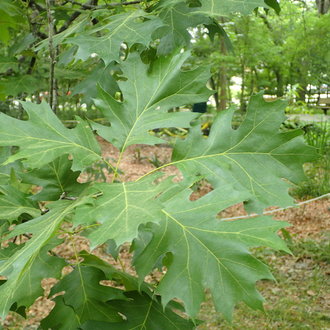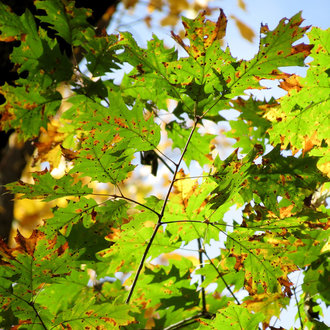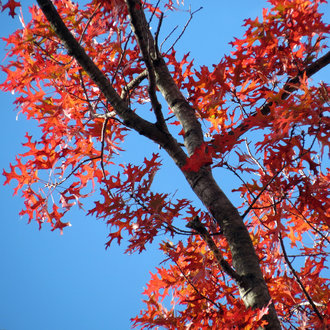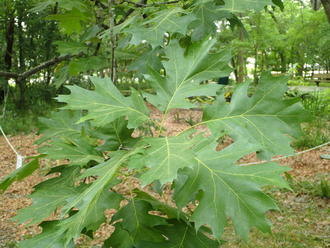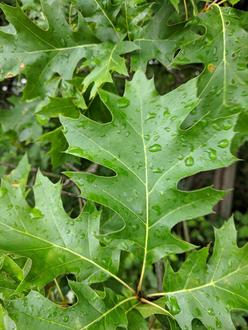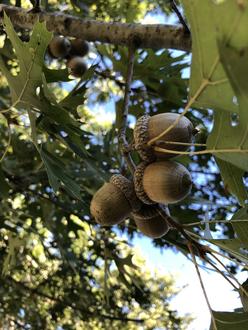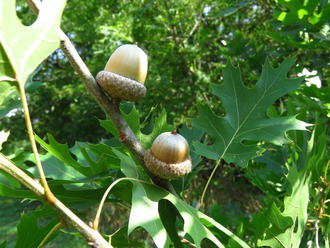Shumard Oak (Quercus shumardii Buckley)
Also known as Shumard's oak.
↑Summary
A large red oak native to calcium-rich bottomlands in the southeastern to central US.
↑Range - Expand
| Legend | Color |
| Native | |
| Native or Not Present |
This tentative map is based on our own research. It may have limited data on Canada and/or Mexico, and there is some subjectivity in our assignment of plants as introduced vs. expanded. Read more in this blog post.
Although this plant occurs somewhere in each of these regions, it may only occur in a small part of some or all of them.
↑Similar Plants
↑Habitat
Found mostly on moist, well-drained loamy soils, in better-drained portions of bottomlands and adjacent bluffs, but also found on dry uplands and ridges, especially in the southern portions of its range. Strongly associated with calcium-rich soils, such as limestone soils, and tolerant of high soil pH in the more arid parts of its range.
Typically found in mature forests, but as an occasional or uncommon element, usually in isolated trees. Trees usually establish in gaps in mature forests. Absent from early-succesional stages of forests.
↑Links & External Resources
• Shumard Oak | The Wood Database (About This Site)
• Shumard Oak | Fire Effects Information System (FEIS) (About This Site)
• Quercus shumardii (Shumard's Oak) | USDA PLANTS Database (About This Site)
• Quercus shumardii (Shumard Oak) | Missouri Botanical Garden Plant Finder (About This Site)
• Shumard Oak | Virginia Tech Dendrology Factsheets (About This Site)
• Shumard Oak | Silvics of North America (About This Site)
• Quercus shumardii | Biota of North America Project (BONAP) (About This Site)
• Quercus shumardii | NatureServe Explorer (About This Site)
• Quercus shumardii | Flora of North America (About This Site)
• Shumard Oak | Maryland Biodiversity Project (About This Site)
• Quercus shumardii Buckley (Shumard Oak) | Digital Atlas of the Virginia Flora (About This Site)



